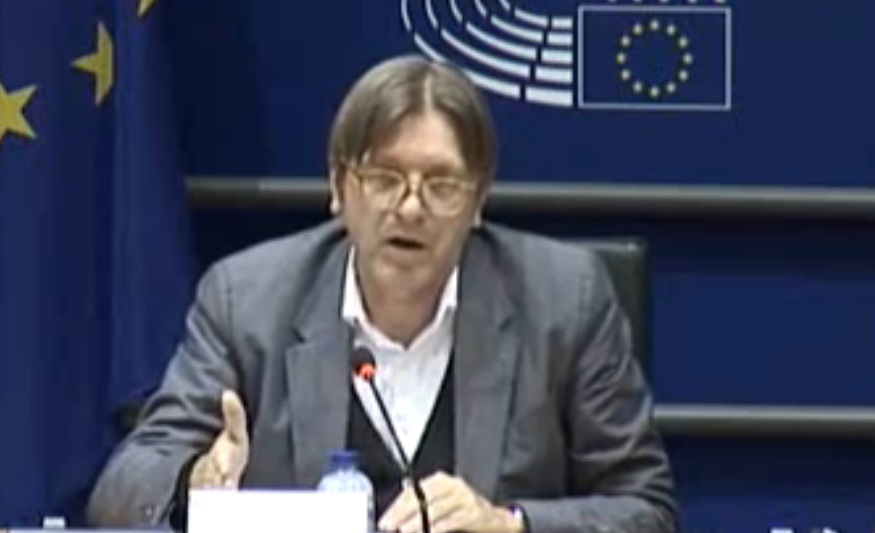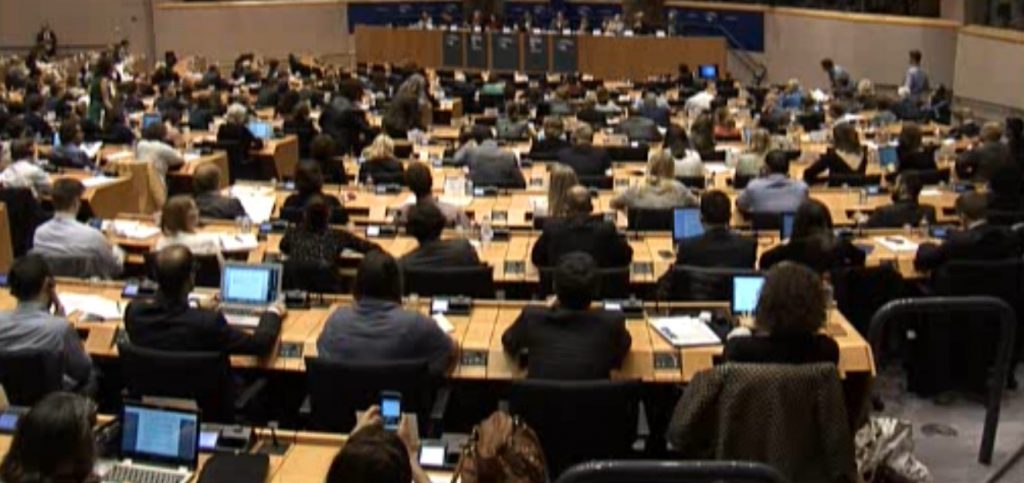Brexit is the toughest challenge for 5 million people. Future of UK and EU citizens could be negotiated before any other talks
Considering both UK citizens living in the European Union and EU citizens living in the UK, some 5 million people will have to deal with Brexit in a unique way. A debate on how European structures can prioritise the safeguard of its citizens’ rights highlighted the fear, anxiety and solutions on the matter.
In a joint hearing organised by the committees of Civil Liberties, Employment and Petitions, both experts and MEPs agreed on the importance of the need to end the uncertainty created for both EU citizens living in the UK and UK nationals in the EU since the June referendum.
Petitions and letters from both UK and EU citizens living in fear
Parliament’s Brexit coordinator, Guy Verhofstadt, and Cecilia Wikström, Chair of the Petitions Committee, both said, during the hearing, they have received letters and petitions from people.
“The Petitions Committee of the European Parliament has received a lot of petitions in recent months, people who are afraid for their small businesses, people who are unable to seek a job, people who are afraid of being separated from their families or who are in fear of leaving the UK on holiday in case they would experience issues with visas or re-entry. These people are anxious and frightened about the future. The Brexit decision has created uncertainty for millions of people and the citizen’s concern for the future must be our top priority. And issues on citizen rights sorted out before anything else is negotiated,” Wikström said.
Guy Verhofstadt underlined three situations: EU citizens in the UK, UK citizens in the EU and UK citizens in the UK who want to keep a link with the European Union.
“All three categories are affected by Brexit. There are “victims” of Brexit because of uncertainty. You feel it in every contact with UK citizens on the continent and EU citizens in Britain, and even UK citizens who against their will lost, or will lose, their EU citizenship. I have received between 6,000 and 7,000 individual letters and emails. People, UK citizens and EU citizens, describing individual situations. Most of them saying, in the end, that they don’t know what to do,” he said.
Verhofstadt added that more than 300,000 signatures were received on the subject of keeping a link between UK citizens who opposed Brexit and the EU and said the Brexit problem is both a massive one as an individual one, as each case is different and people are afraid and anxious.
The three million are, in fact, much more
Anne-Laure Donskoy, a freelance academic researcher and the3million’s co-chair, said, in regard to the three million EU citizens living in the UK, that they face difficulties in their daily lives since the Brexit referendum. Donskoy proposed a solution to the uncertainty.
„We fundamentally disagree with the principle that nothing is agreed until everything is agreed. We call on all negotiating parties to support an early ring-fenced legally binding separate agreement serving our indivisible rights as part of negotiations under Article 50,” she said.
MEPs agreed and said a quick solution for citizens’ rights is a matter of priority, with Guy Verhofstadt, adding the House might adopt a resolution on this issue, probably after the summer recess.
But although the situation of the three million EU citizens living in the UK is dire, the number of those who will be affected is much higher, as Renate Weber, Vice-Chair of the Employment Committee, explained.
„Brexit will have an impact on daily lives of millions of EU citizens. More than 21 million tourists from the EU 27 visit the UK annually, 125,000 students from the EU 27 study in the UK, 120,000 persons from the EU 27 are seeking jobs in the UK.,” she said.
Experts on Brexit’s effect and priorities
A number of experts took the floor and talked about Brexit and the need for clear solutions to challenges facing both EU and UK citizens.
“Being half German and half British and speaking every language now with an accent, for me Europe is not a theoretical idea or the enemy, as Theresa May sees it, but it is home,” Jan Doerfel Chambers, a Direct Public Access Immigration Barrister, said during the hearing.
He talked about situations where people living in the UK would not be able to have relatives over.
Charlie Jeffry, a professor at the University of Edinborough, talked about the Erasmus programme and started by pointing out an irony.
“We are now considering the UK’s departure from the Erasmus program, just as we are celebrating the 30th anniversary of something that was set up by a Brit,” Jeffry said.
“It’s a very clear view of universities all over the UK that full participation in Erasmus has to be a key priority,” he concluded.
Julia Onslow-Cole, who is a key expert in PwC’s Brexit Taskforce and was appointed to the Mayor of London’s Brexit Advisory Group, talked about the challenges of Brexit.
She said that many businesses have struggled to identify their existing EU workforce as they were not required to retain this information previously. Onslow-Cole highlighted that a PwC report notes the huge positive impact that migrants have had on UK’s economic growth.
“I’m pleased that both the UK and the EU 27 have said that the rights of EU nationals in the UK and UK nationals in the EU are a priority for the talks. Businesses I have spoken to agree and early clarity in this would be a positive message both to the individuals concerned and to businesses,” Julia Onslow-Cole said.
She concluded that EU citizens living in the UK will expect the UK to set up clearly their rights.
In a plenary resolution adopted on 5 April, the Parliament stressed that citizens’ interests must come first in the negotiations between the EU and the UK government with fair and equal treatment for EU citizens living in the UK and British citizens living in the EU.
The UK government triggered the withdrawal process on 29 March 2017, setting the date for the UK to leave by April 2019.

